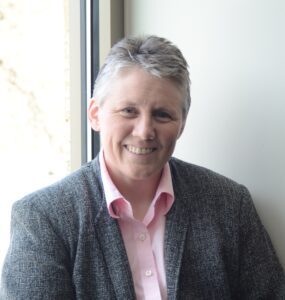Employment Advice for People with Intellectual and Developmental Disabilities
By: Heidi Maghan, Executive Director, Epic Enterprise, Inc.
I’m often asked by families how they should help their loved one with an intellectual or developmental disability (IDD) find a disability-friendly, accessible job. You may be surprised – it’s not all that different from the rest of us. Here are some things to consider:
- We all want to work in a place where we are accepted and have an interest in the work.
- We either need to have the necessary skills or be able to learn them on the job.
- Most of us get our jobs within six degrees of separation, and that’s true for people with IDD, too. Who do you know? Who do your parents know?
- What does the person like to do? What are they good at?
- How do they most effectively learn tasks? What time of day are they at their best?
- What types of environments have they been successful in?
Finding the Right Fit for Someone with IDD
Think back to your very first job. How did you get it? My first job was delivering papers, and I got that job because my brother had a route and introduced me to his manager. I learned many life skills doing this job, which led to babysitting jobs from my paper delivery customers. I have since had many different jobs over my career and have made many connections along the way, as well as job changes. Most of us do not have the same job we started with fresh out of college or high school.
Like mine did, job development starts when a person is young – disability or no disability. Start by evaluating interests and skills, and connect with people and accessible workplaces that align with those interests and skills. Look for what the person is already good at or likes to do and start there. For example, not all of us are tech savvy. If someone placed me in a job troubleshooting technology or building software, I would not be very good at it, and likely would not last in the job very long because it is not within my skill set or interest area. Give me a hammer and some nails, and it would be a different story.
People with disabilities have likes and dislikes, dreams and goals just like the rest of us. We do not all work at or have the skills to do our “dream job,” so it’s best to focus on the person’s skills and interests.
The person must want it, or it won’t matter. Share success stories and what made them successful.
Next, have a conversation with a businessperson. Ask how they got started in their job. Find out what happens behind the scenes and determine if the work environment is inclusive. Be curious. Most of us of like to talk about topics that we are passionate about. When there is common interest or connection, a person becomes more vested in seeing others succeed – not what the parent or the team wants. There are many jobs out there right now, and it is critical to find the right fit for a person who is neurodivergent and the employer.
Disability-Friendly Employment Tips
Someone is going to fail if you place them in a job where they do not have the skills nor interest, let alone the right environment or time of day. (For instance, I am not a night owl.)
When we take time to consider the following factors, we are more likely to see success when finding a workplace for someone with IDD:
- Identify the best time of day (not everyone is a morning person) and consider if full- or part-time is the right fit.
- What needs to be in place for the person to be successful? (Sometimes it is us getting out of the way!)
- How does the person learn new things, and what are their current skills and interests?
- Consider transportation needs and how the person will get to work.
Working is a good thing! Go find your niche in the world and make the best of it!
More Information and Support
New experiences are always a chance. You have a better chance for success when matches can be made based upon skills and interests and providing the right support. We all have support in some way or another on our jobs. For help determining what kind of support people with IDD need from an employer and needs they may have with independent living skills, you can work with organizations such as Laura Baker Services Association’s Family Navigation Services program, Vocational Rehabilitation Services (VRS) or providers such as Epic Enterprise, Inc.
About the Author
Heidi Maghan is the Executive Director at Epic Enterprise, Inc. in Dundas, Minnesota. Since 1976, the organization has enriched the lives of individuals with disabilities by providing individualized services that focus on finding purpose through employment opportunities, community involvement and the arts. You can reach Heidi at (507) 645-6800 or hmaghan@epicenterpriseinc.org.

